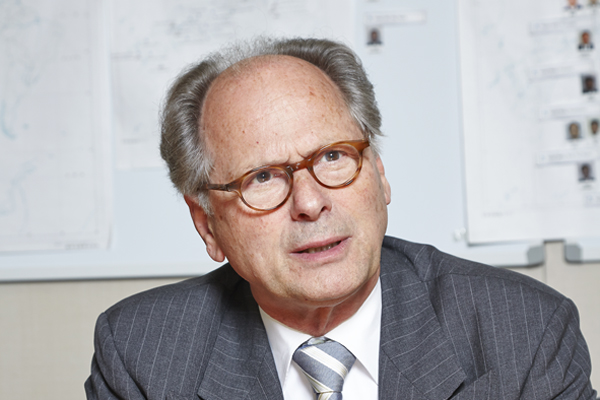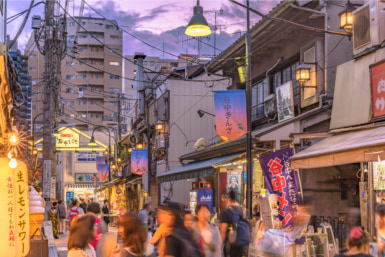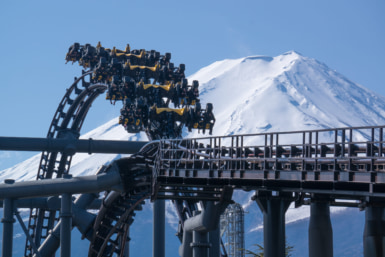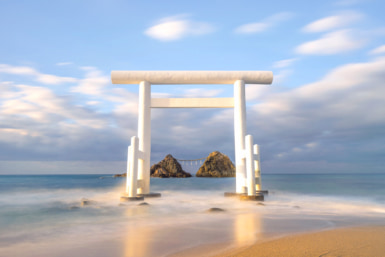Hotel Okura and its Nikko brand have always been some of the crown jewels of Japan’s hospitality industry. The branding is familiar to most of us who travel, as is the reputation as an established and trustworthy Japanese style hotel chain.
by Asi Rinestine
Much to our surprise, we recently learnt that the top man at Nikko Hotels was actually a non-Japanese speaking Dutchman. When we told Mr. Marcel P. van Aelst how surprised we were to find a foreigner at the helm, he immediately shared his pride in the fact that group has quite a few high ranked foreigners – including general managers – on the payroll, part of a determined drive to expand internationally.
Van Aelst himself first joined Hotel Okura in Amsterdam in 1970 after an executive management-training program here in Tokyo. His early career then took him to Inter-Continental Hotels in Germany, Denmark and the US, before he returned to his original company, back in the Netherlands, as general manager of the Hotel Okura in Amsterdam.
Life in the hospitality industry often means extensive travel, and he was pulled back in part due to the promise that he would be based there for good and would be able to settle in his home country. This was not, though, how things turned out.
After being promoted to a board member position in Okura he had a crucial role in developing and managing Okura’s hotels outside Japan. It was this international experience that prepared him for the big seat.
When JAL got in serious financial troubles back in 2009/10 it sold the hotel business to Okura and van Aelst was made CEO of the JAL Hotels Co. Ltd., overseeing the management of 51 hotels worldwide.
Running a business in Japan as a foreigner is never easy, and when the business is one of Japan’s premier hotel chains, run by a company that is widely seen as traditional in its business style and structure, it’s a sure bet the Dutchman faces some major challenges.
“The decrease in the value of the yen is expected to offset the decrease in inflow of Chinese tourists due to the political climate”
Communication is always an issue and van Aelst says he struggles a bit with the language. Also, Japanese logic is not always the same as that of Europeans, but the fact that he started his career with Okura softened the culture shock. “Japanese do not base their decision making on rational thinking alone; maintaining the harmony is very important,” he says.
However if Okura is intent on global expansion, some further adjustments should be made. “I love making quick decisions and taking action and even after 40 years of back and forth travel to Japan I feel the same way about it,” he says, sounding still very much a westerner.
In the competitive hospitality industry hotels need to work hard to set themselves apart. What distinguishes Nikko from other hotels? “Okura’s strength lies with its Japanese DNA.”
“We are an international hotel company,” van Aelst adds. “Business travelers are almost all about the location, but that depends on the country.” But there are two distinct categories of customers, he feels. “Japanese tourists will come to our hotels to be ‘home away from home’ and other nationals want to experience the Japanese style of hospitality.”
Knowing that you can trust Japanese management to get things right without loose ends, “chanto,” as they call it here, helps as well – there is a zero defect tolerance policy, which fits into that. Obviously each Nikko or Okura hotel property across the world has decent Japanese restaurants to go along with it, too, a key part of the brand.
Tourism today
“The decrease in the value of the Yen is expected to offset the decrease in inflow of Chinese tourists due to the political climate,” van Aelst says when we ask about the current trends in tourism.
This could persist for a while longer, he feels, but he does point out that the perception of Japan as an expensive country, which sometimes puts people off visiting, is wrong: “Especially when comparing to other major destinations in Europe, like London or Paris, prices in Japan are very reasonable.”
Van Aelst is pointing fingers at the international press (not the TW of course) for extensively writing about outrageously expensive clubs in Ginza, for example. But no one writes about causal eating out in Japan, which is cheaper than in many other developed countries. English levels are improving across the service industry here, particularity in Tokyo, and the famous kindness of the Japanese towards tourists is a favorable factor as well. “I used to collect match boxes in order to know how to come back to my favorite restaurants in Japan – this is no longer needed.”
Some parallels could be observed in van Aelst’s way of thinking with Toyota’s ‘kaizen’ philosophy of constant improvements. “One of my favorite quotes is ‘Quality is a race without a finish’ from Prof. Malcolm Baldrige,” van Aelst says. “We always need to strive to improve.”
“In our business doing a good job 99.9% of the time is not enough,” he says. “Once you make a mistake this is what the guests remember. And since our guests are expecting the same standards in our properties across the world we need to educate our international staff for the same service standards – this is not an easy task”.
“This is a demanding business and people do not often say thank you, because this is what they came for – paid for – and we need to meet their expectations 100% of the time.”
Business takes people to the ends of Japan – but it doesn’t have to be a hassle. We asked three local expats who are often on the road about their experiences of two cities in particular, Fukuoka and Sapporo.
Brock Worbets, Director, Apex KK
What do you like about Fukuoka and Sapporo? In Fukuoka, the beach is nice and they have a great shopping district/complex downtown, which has hotels, a movie theater and events. Sapporo Beer Garden is great and the snow festival (in February) is also very nice.
What is important to you when booking a hotel? In Fukuoka, I stay at the JAL Seahawk, connected to the baseball stadium and also on the beach. It is great! The Grand Hyatt in the shopping complex is also great – the location is perfect. In Sapporo, I always stay at different hotels, usually downtown with good prices.
Any tips to the novice short-term traveler? Visit either city during the festivals (Fukuoka summer festival and Sapporo Snow festival) and you are guaranteed to have a great time. The people are great and very welcoming to people visiting and local restaurants have some great food.
Dr. Serge Corneillie, Regional Manager, Japan-Korea, ALLTECH
What do you like about Fukuoka and Sapporo? Fukuoka, where we have some distributors, is maybe the nicest city in Japan. It’s quite compact and the airport is in the center so traveling time is incredible. There are direct flights to every major Asian city and you save maybe an hour and a half on Tokyo. I also love the beach, where you can have lunch and not be too far away from the airport – quite rare in Japan. In Sapporo, I love how it only takes an hour to get out to one of the local ski resorts.
What is important to you when booking a hotel? Good location, and it’s good that rates are usually lower than in Tokyo. In Fukuoka particularly you can stay near the baseball dome and the beach and you have everything you need for entertainment as well as business.
Any tips to the novice short-term traveler? What you pay more for flights (in and out of Fukuoka versus Tokyo) you’ll make up in saved time, it would be a fantastic place for an international headquarters.
Lorenzo Scrimizzi, President, Carpigany Japan
What do you like about Fukuoka and Sapporo? You can find the best restaurants in Tenjin or Nakasu (Fukuoka) or in Susukino (Sapporo), most Japanese seafood restaurants are simply excellent there.
What is important to you when booking a hotel? Convenience of course first, and then a decent, clean hotel. In Fukuoka most convenient hotels are around Hakata station area – Nikko or Grand Hyatt for example. In Sapporo as well, nearby Sapporo station is the best place to look – ANA and Grand Hotels are good.
Any tips to the novice short-term traveler? Get some hints from local insiders about the restaurants. Sometimes very good spots – high quality and not so expensive – are not in the most obvious places, but they do exist.
Main image: Marcel P. van Aelst in Tokyo, by Norihisa Kushibiki
Updated On March 30, 2018









